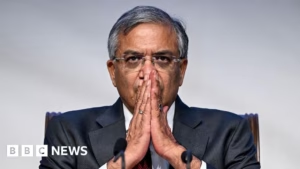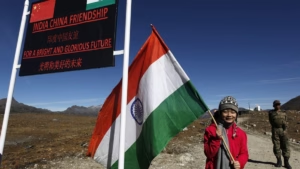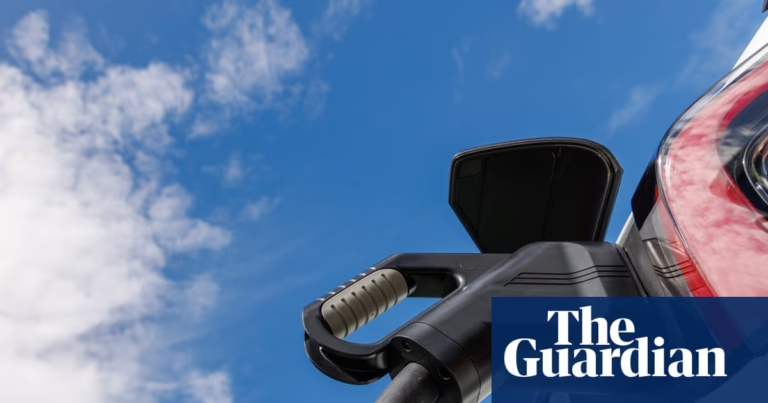Former Labor minister Bill Shorten thinks the Australian government should push back harder on Donald Trump by introducing “dollar-for-dollar” tariffs on American products as retaliation for the tariffs imposed on Australian steel and aluminium.
Globally, governments and markets are still struggling with the numerous tariffs and trade barriers that Trump introduced in the early months of his presidency. This week’s confirmation that Australia would not get an anticipated exemption from steel and aluminium tariffs was a setback for the Albanese government just before the federal election, after weeks of high-level talks with the Trump administration.
Shorten on Friday urged the government to press the issue more, telling Channel Seven: “I’m confident that this government, and reasonable Australians think, at a point, ‘You push us, and we push you.’ It’s as straightforward as that.”
“If people don’t play by the rules, you’ve got to stand your ground and fight back.”
Senior government sources said discussions on steel and aluminium would continue, with the hope of reversing the decision, but there is also concern about possible future US tariffs on sectors such as agriculture and medicine. Australian farmers are eagerly waiting to hear if meat exports will be impacted in the next round of tariffs.
Prime Minister Anthony Albanese stated that Australian officials had presented “a range of propositions” to the US, but did not elaborate further. Foreign Minister Penny Wong acknowledged that part of the discussions focused on access to critical minerals, indicating that diplomats had “looked at all those aspects that the Trump administration indicated were of importance”.
Government ministers have been focusing on minerals such as lithium, copper, nickel, and cobalt, which are abundant in Australia and crucial for renewable energy products such as wind turbines and batteries. The Trump administration has expressed its interest in securing Ukrainian supplies of these critical minerals as part of negotiations with Russia.
Resources Minister Madeleine King noted that Australian minerals were in high demand from the US, but appeared to suggest a threat of giving access to other nations instead.
“We would very much like to have a partnership with the US, but if they don’t want to, then that’s up to them and we’ll work with other nations too,” King told the ABC.
Coalition trade spokesman Kevin Hogan agreed that critical minerals should be part of the negotiations with Trump but proposed the inclusion of the AUKUS submarines deal in discussions.
“We have the $800m AUKUS cheque that Richard Marles just threw on the table as part of the AUKUS arrangement. So, we believe we have more points of leverage with the US now than when we got the exemption a few years back,” he told ABC Radio National.
On Channel Seven’s Sunrise, Shorten voiced concerns about the impact on other sectors, a concern given his senior role in the Labor government as a former leader and cabinet minister until his retirement from politics just seven weeks ago.
after newsletter promotion
“It’s steel and aluminium today. Will it be agriculture and farming tomorrow? At some point we have to send a message to President Trump … that if you do something to us, we’ll do it back to you. We cannot be pushed around,” Shorten said.
“Australia might be smaller than America, but we’re not a soft target, and we need to consider putting everything on the table, as I’m sure the government will, to fight back.”
Asked what that should include, Shorten responded: “If they keep imposing tariffs on our goods, we need to reciprocate dollar-for-dollar, tariff-for-tariff. We aren’t there yet.”
“At some point, the people you’re negotiating with must think you’re a viable alternative, they have to see you mean business.”
However, his former colleague, education minister Jason Clare, who appeared on Sunrise after Shorten, disagreed.
“If we were to retaliate and increase tariffs here, it would be like poking ourselves in the other eye. It would raise prices for Australians. That’s the last thing we want to do,” he said.
Referring to the government’s efforts in reducing trade barriers with China, Clare suggested the better strategy would be to diversify trade relationships and find new markets, as well as “working professionally behind the scenes with that country, until they see the errors of their way, and we get those products back into those markets”.







